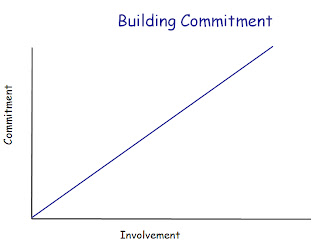Basic Communication Skills
Several students come to me and
request me to help them improve their written communication skills and oral
communication skills. There is no shortcut that can make anyone a great
communicator instantly. Improving your communication requires dedicated efforts
and a great deal of persistence. However, there is a list of things that can be
done to improve written communication skills and oral communication skills.
Improving Written Communication Skills:
1) Read more: One of the greatest learning tools to enhance your
writing skills is ‘reading’. Read more books and start by reading books with
easy language. Some authors who write ‘easy reads’ could be a good starting
point. Ex: Chetan Bhagat’s books may be good for people who are not used to
reading much. As you progress you can select books and authors according to
your area of interest. This can also help you enhance your writing skills.
2) Start writing a blog: Writing a blog can be an interesting exercise
and requires minimal effort. You can start a blog and start writing about this
that you are passionate about. You can exercise some caution to ensure that you
are regular, with regard to writing blogs. Start by blogging 300- 350 words
every week and increase the frequency and volume of writing as you become more proficient.
3) Present your work for review: Ask your friends, faculty members, and
other writers/bloggers to review your writing. This will be helpful in
understanding your mistakes and errors. You can correct these errors and
progress stage by stage.
4) Write in small chunks: You can start writing small paragraphs with
few sentences and work towards bigger paragraphs. For instance, you could start
by writing merely 75 words or 100 words per paragraph. This will give you psychological
comfort and motivate you to write more.
5) Experiment with different forms of writing: Different people love
different kinds of writing. Try different genres of writing and discover what you
like writing. Ex: Some people love writing poetry whereas some others love
prose. Some people like writing good E-mails. Some people are comfortable writing
small articles. Hence, experiment by trying different forms of writing.
6) Ask experts to review your writing: Once you are confident about
your writing, present what you have written to the experts. Those who have
written books, articles in newspapers etc. can be instrumental in helping you
with the minor nuances of writing like flow, sequencing etc.
7) Use websites that can help you correct your grammar and spellings:
There are several websites that can help you improve your writing in terms of
grammar, spellings and context. Some of them are:
http://www.reverso.net/spell-checker/english-spelling-grammar/
http://spellcheckplus.com/
http://www.onlinecorrection.com/
http://sentencechecker.com/
https://www.languagetool.org/
8) Use thesaurus to enhance your vocabulary: Thesaurus gives you a
list of synonyms and hence, helps you improve your vocabulary. Therefore, it’s
advisable to buy a thesaurus or install an app that gives you a list of
synonyms and meanings.
9) Join Writing Clubs/Writing Groups:
There are several writing clubs at universities, colleges and also on
online forums like FB, Meetup etc. Become a member of any these clubs.
10) Make it a habit: Make ‘writing’ a habit. Establish a routine and schedule
for writing and related activities. Also attend literature festivals and events
related to writing.
Improving your Oral Communication Skills:
1) Start by Starting: Take initiative and grab opportunities to
communicate. Don’t be afraid of mistakes. Ensure that you participate in
class presentations, group discussions, debates and extempore elocution events.
Never hesitate to go on stage and perform. You get used to things, by getting
used to things that precede the things. Be confident.
2) Watch movies: Movies are great entertainers and learning tools.
Watch one English movie every week. Check for “Must watch Hollywood Movies”, “Best
Movies of All Time” etc to know what movies you should watch. You can also ask
your friends who are movie bluffs. Movies like ‘The Great Debaters’, ‘The
Pursuit of Happyness’ etc can teach you many lessons.
3) Communicate with your friends in English: Please communicate
with your friends and classmates in English. Make it a practice that you speak
to your friends and classmates in English. Don’t use your mother tongue unless
absolutely necessary.
4) Mirror Talk: Presenters, TV show hosts, celebrities use the
technique of ‘mirror talk’. Talk to your
mirror image for a few minutes every day to build confidence and understand
where you lack.
5) Record: Use your smartphone to record rehearsed speeches and
short talks. You can review the video to check for errors and mistakes. You can
also share the video with people who are very good at oral communication and
get feedback.
6) Read Out Aloud: Read books aloud, so that you can work on your pronunciation
and diction. When you read out aloud, you also realize the words that you are
unfamiliar with.
7) Watch TV Debates: TV Debates can also be instrumental in helping you improve your oral communication skills. For: NDTV's 'The Big Fight' and Times Now's 'Newshour Debate' can help you improve your oral communication skills.

Comments
Definitely I will...